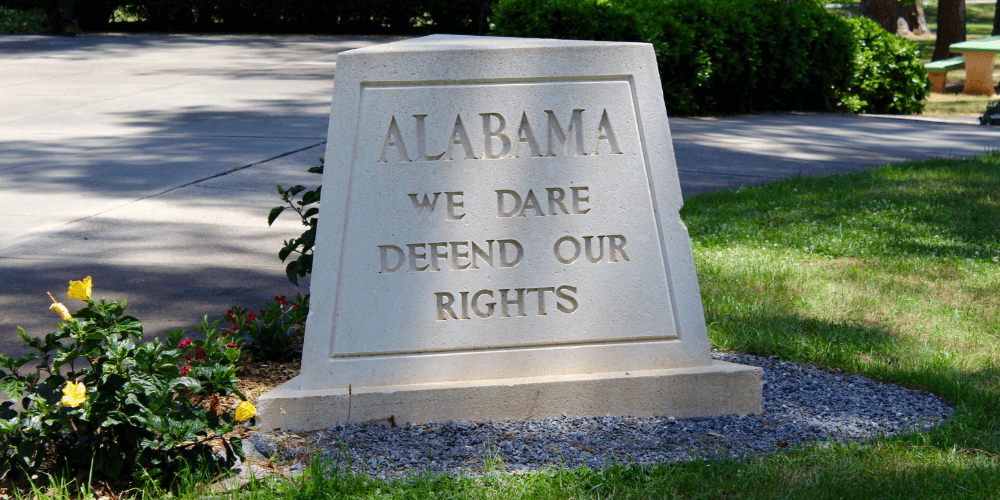Search for Other Treatment Facilities in Alabama:
- ASL or other assistance for hearing impaired
- Access to Recovery Voucher
- Buprenorphine Treatment Centers
- Drug and Alcohol Detox Treatment Centers
- Dual Diagnosis Treatment Centers
- General health services
- Halfway Houses
- Hospital Inpatient Care
- Long Term Drug Rehab and Substance Abuse Care
- Medicaid
- Medicare
- Mental health services
- Methadone Detoxification Treatment Centers
- Methadone Maintenance Treatment Centers
- Military Insurance (e.g.VA, TRICARE)
- Outpatient care
- Partial hospitalization or day treatment
- Payment assistance (Check with facility for details)
- Private health insurance
- Self Payment
- Short Term Drug Rehab and Substance Abuse Care
- Sliding fee scale (Fee is based on income and other factors)
- Spanish
- State Financed (other than Medicaid)
- Substance Abuse Treatment Centers
- Substance abuse treatment services
- See all treatment centers in Alabama
- programs for addicted criminal justice clients
- programs for alcohol related criminal justice clients
- programs for clients with HIV or AIDS
- programs for gays and lesbians (LGBT)
- programs for men
- programs for people with a dual diagnosis (co-occurring mental and substance abuse disorders)
- programs for pregnant and postpartum women
- programs for seniors and older adults
- programs for women
- programs for young adults
- residential beds are available for clients' children
Drug Treatment Centers in Alabama: An Overview
Alabama, like many states in the U.S., faces significant challenges related to substance abuse and addiction. With a population of nearly 5 million, Alabama has seen an increase in drug-related issues, particularly involving opioids and methamphetamine. The state has responded by expanding access to drug treatment centers to help those in need. In fact, over the past decade, the number of facilities has grown, providing crucial support for individuals seeking recovery.
Drug treatment centers in Alabama play a vital role in addressing the state’s addiction crisis. According to recent statistics, Alabama has one of the highest rates of opioid prescriptions in the country, with 97.5 opioid prescriptions per 100 people in 2020. This alarming rate underscores the necessity for effective and accessible treatment options. Whether in urban areas or smaller communities, these centers offer a lifeline to those struggling with addiction.
Navigating Recovery: Drug Treatment Centers in Mobile
Mobile, Alabama, home to over 190,000 residents, is not immune to the challenges of substance abuse. The city has seen a rise in drug-related issues, particularly with opioids and methamphetamine. Drug treatment centers in Mobile are essential in combating these problems, offering a range of services from detoxification to outpatient counseling.
The need for drug treatment centers in Mobile is evident. In 2019, Mobile County reported over 300 opioid-related emergency department visits, highlighting the critical need for intervention and support. These centers provide comprehensive care that addresses both the physical and psychological aspects of addiction, ensuring a holistic approach to recovery.
Mobile’s treatment facilities are equipped to handle a variety of substance abuse issues, with programs tailored to meet individual needs. From inpatient rehab to support groups, these centers offer the resources necessary for individuals to achieve and maintain sobriety. As the city continues to battle addiction, the importance of these centers cannot be overstated.
Overcoming Addiction: Drug Treatment Centers in Birmingham
Birmingham, the largest city in Alabama with a population of over 200,000, faces significant challenges with drug addiction. The city’s drug treatment centers are at the forefront of providing much-needed care and support to those affected by substance abuse. These facilities offer a range of services, including residential treatment, outpatient programs, and mental health counseling.
Drug treatment centers in Birmingham are crucial for the city’s ongoing battle against addiction. In Jefferson County, where Birmingham is located, there were over 400 drug-related deaths in 2020, with a significant portion involving opioids. This statistic underscores the urgent need for effective treatment options in the area.
The drug treatment centers in Birmingham are designed to provide comprehensive care, addressing the unique needs of each individual. By offering a combination of medical and therapeutic interventions, these centers help patients not only detoxify their bodies but also develop the skills necessary for long-term recovery. Birmingham’s commitment to expanding access to treatment is vital in reducing the impact of addiction on the community.
Healing and Hope: Drug Treatment Centers in Huntsville
Huntsville, known for its high-tech industry and growing population of nearly 200,000, also grapples with substance abuse issues. Drug treatment centers in Huntsville are essential in providing support to those struggling with addiction. These facilities offer a wide range of services, including detox programs, therapy sessions, and aftercare planning.
The necessity for drug treatment centers in Huntsville is highlighted by local statistics. In Madison County, there were over 250 drug-related overdoses in 2020, with opioids being a major contributor. This alarming figure demonstrates the need for accessible and effective treatment options to address the crisis.
Huntsville’s treatment centers are equipped to handle various forms of addiction, providing tailored programs to meet the specific needs of each patient. By combining medical care with therapeutic support, these centers ensure a comprehensive approach to recovery. The ongoing efforts to enhance treatment availability in Huntsville are crucial for supporting the community’s overall health and well-being.
A Path to Recovery: Drug Treatment Centers in Montgomery
Montgomery, the capital city of Alabama, with a population of approximately 200,000, faces its own set of challenges with substance abuse. Drug treatment centers in Montgomery are pivotal in offering support and recovery services to individuals battling addiction. These centers provide a variety of programs, from inpatient rehabilitation to outpatient counseling.
The importance of drug treatment centers in Montgomery is evident from recent data. In Montgomery County, there were over 200 opioid-related hospitalizations in 2020, reflecting the severity of the addiction issue. These centers are vital in providing the necessary care to help individuals overcome their dependencies and rebuild their lives.
Montgomery’s drug treatment facilities are committed to delivering comprehensive care, addressing both the physical and psychological components of addiction. By offering personalized treatment plans and continuous support, these centers play a key role in the recovery journey. The expansion of treatment services in Montgomery is essential for mitigating the impact of substance abuse on the community.
Transforming Lives: Drug Treatment Centers in Tuscaloosa
Tuscaloosa, home to the University of Alabama and a population of over 100,000, is not exempt from the challenges of drug addiction. Drug treatment centers in Tuscaloosa are crucial in providing the necessary support and care for those affected by substance abuse. These facilities offer a range of services, including detox, therapy, and long-term recovery programs.
The need for drug treatment centers in Tuscaloosa is underscored by local statistics. In 2020, Tuscaloosa County reported over 150 drug-related deaths, with a significant number involving opioids. This highlights the critical need for effective treatment options to address the ongoing crisis.
Tuscaloosa’s treatment centers are designed to provide comprehensive care, ensuring that individuals receive the support they need to achieve and maintain sobriety. By offering a combination of medical and therapeutic services, these centers help patients navigate the challenges of recovery. The commitment to expanding access to treatment in Tuscaloosa is vital for fostering a healthier community.
The Lifeline of Recovery: Drug Treatment Centers in Alabama
Drug treatment centers in Alabama are a lifeline for individuals struggling with addiction. These centers provide essential services, from detoxification to long-term therapy, addressing both the physical and psychological aspects of addiction. With the state’s high rates of opioid prescriptions and drug-related emergencies, the availability of effective treatment options is crucial.
In cities like Mobile, Birmingham, Huntsville, Montgomery, and Tuscaloosa, drug treatment centers are making a significant impact. Each city’s unique challenges require tailored approaches, but the goal remains the same: to provide comprehensive care and support for those on the path to recovery. As Alabama continues to battle the substance abuse crisis, the importance of these treatment centers cannot be overstated.
Resources